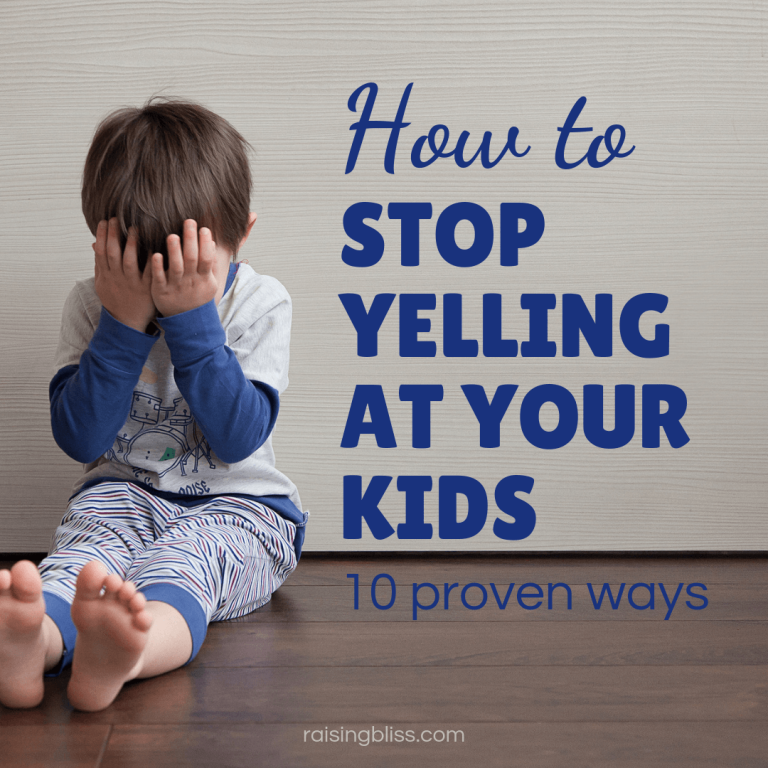How to Get Through to Your Strong Willed Child
Raising a child that’s strong-willed? Here’s how to connect with them and stay friends despite the challenges.
All children can show signs of a strong will at one point or another. But it’s when you see the signs of a strong-willed child consistently, you may be fortunate enough to be raising a strong-willed child.
While strong-willed kids, both boys and girls, can prove to be difficult at times (or most of the time), they have amazing qualities that, if channeled correctly, will be the making of great leaders and change-makers.
I know how it feels to have a strong-willed child. It seems that no matter how much you ask, plead, or reason, the child simply does not comply.
I’m a mom of five kids that are still growing, and still developing characters. Every one of them takes a different approach. It took me a long time to finally find a way to my strong-willed son’s heart. It seemed I tried everything to get across to him, and nothing worked. Until one day.
The day I found the way to my strong-willed child’s heart
The boys came home from school, and after snack time was over, it was time for homework. We stick to the same routine every day, and they know what to expect next. Of course, sometimes they go to play instead, and I have to remind them that this is the time for homework.
Two of the boys were sitting at the table, doing their work. My strong-willed son was walking around the kitchen, and every time he passed the breakfast table where his brothers were working, he did something to distract the boys. He’d grab one of their pencils on one round throw it on the table on another round, and on the third, he would push one of their chairs away from the desk.
Nothing I said was working. At first, I asked nicely. In hopes to motivate him, I reminded him how diligently he did his work, and that his teacher would be happy to see it completed. Sometimes kind words worked for him, but not that day. When cajoling didn’t work, I asked him sternly, to no avail.
I then resorted to saying he’d get a consequence if he didn’t comply. When that didn’t work and the consequence has been issued, I asked if he wanted me to call daddy, to which he shrugged his shoulders, and said, “Go ahead.”
Feeling absolutely helpless and exasperated, an idea entered my head. It was worth a try. I came up to him as he stood on a kitchen chair (he was obviously feeling very defiant that day), and I hugged him, saying, “I think you need some special time with mama.”
He sunk right into my shoulder, wrapping his hands around my neck. I picked up my 50-pound baby boy and walked around the house with him, just hugging him and holding him. When I could walk no more, I sat down on the couch, sat him on my lap, and stroked his back.
We sat together for a few more minutes, and then he got up, went to the table, took out his homework, sat down, and started working.
I could not believe how simple the solution was. He didn’t need me to tell him what to do, he already knew it. All he needed was simply some undivided attention, a little one on one time, and he was golden.
After he was done with his homework, he came up to me and asked me if I needed help with anything. Amazing.
Challenges of a strong-willed child
Strong-willed children, sometimes referred to as spirited children, are very, very special. It’s easy to interpret their characteristics as negative. Strong-willed children can be:
- Bossy
- Defiant
- Intense
- Difficult
- Reactive
- Stubborn
- Impatient
- Prone to fits
- Argumentative
- Unwilling to listen
They don’t want help, they want to make the call, they want to do what they want and don’t like to be told what to do. They don’t like hearing “no”, but often say “no” themselves. They can make you feel completely helpless and emotionally unstable.
When raising a strong-willed child, all those things can feel like a burden, but I’m calling you to reframe the personality traits you see in your strong-willed child.
Qualities of a strong-willed child
Our strong-willed sons and daughters have amazing qualities, some of which are:
- Moral
- Bright
- Driven
- Energetic
- Confident
- Inquisitive
- Passionate
- Determined
- Goal-driven
- Enthusiastic
- Courageous
- Independent
- Great leaders
- Great negotiators
- Great problem-solvers
Kids with strong will have great ideas, grit, and integrity. These amazing qualities make them great leaders with innovative ideas who have amazing potential to become change-makers.
When we reframe the character traits of our children, we see a completely different picture. An argumentative child is transformed into a great negotiator, and a defiant child into a determined one.
So what do you do when your strong-willed child is having another episode of complete defiance? How do you parent your spirited child and keep it together? Here is a list of 18 tips for building a better relationship with your strong-willed daughter or son.
1. Ask and listen
If you’re raising a strong-willed child, instead of telling him what to do, ask for his opinion instead. Strong-willed children are often smarter than we give them credit for, and often will make the right choice, given the opportunity. Listen to him and if what he offers works for you, go for it.
This does not mean completely giving him the reigns. This is giving him the opportunity to make his own decisions. Make sure to give him choices you can easily agree to. When he makes his own choice, he will feel heard and important.
2. Practice problem solving
Ask him how he would solve a problem. It can be a real problem, “Your baby sister spilled her milk on the floor. How can we fix the problem? What should we do first?” Or it can be a hypothetical problem, “What would you do if a raccoon came into the house?”
Strong-willed children have amazing problem-solving skills and giving them the opportunity to solve a real or hypothetical problem is a very important part of helping them build a strong character.
3. Put him in charge
My strong-willed son thrives when I say something like, “You’re in charge of setting the table today.” He does it with glee, and if one of his brothers comes in to help, he’ll tell him where to put the plates. After all, he’s in charge.
4. Let him see for himself
When your son refuses to wear the jacket in the winter, let him walk outside without one. If he’s truly stubborn, he will most likely say that it’s not cold at all while shivering all over. You can take the jacket for him, and have it available in case he changes his mind. Give him a chance to see for himself why he needs to wear the jacket. Sometimes he simply needs to feel that he’s the one who made the decision to wear the jacket.
5. Show him respect
Talk to him like you want him to talk to you. Listen to him like you want him to listen to you. Show him unconditional love. He is learning by example, show him how it’s done.
6. Do what you say
In order for you to have any influence over your strong-willed child, he needs to respect you. Keep your word and do what you say. When a child loses respect for the adults in his life, he will be open to other influence. And while sometimes strong-willed children will look up to someone outside of their home who will have a positive influence on them, it’s not always the case.
7. Encourage him to share his feelings
When you see yourself as tough, it seems like it’s counter-intuitive to put your feelings to words. Kids feel the same way. But it’s so important to help our children develop emotional intelligence, and it starts with putting feelings into words.
In order to encourage him to do it, do it first. Words like, “I’m feeling frustrated,” or “That made me upset,” or “I feel sad” will go a long way in teaching your child to express his own feelings, and begin developing emotional balance.
8. Coach him
A strong-willed child needs a strong leader in his life. Without a strong leader, he takes that task upon himself and can seem even more defiant and bossy. Be the strong leader he needs you to be. Coach him and teach him. Be his guide.
9. Establish routines
Routines give children predictability, and they thrive when they know what’s coming next.
10. Help him understand
Strong-willed kids are inquisitive by nature. They like to figure out how things work, and they are very open to explanations of the reason behind everything. If you tell him, “You have to put your toys away,” he may push back.
But if you explain, “After you put your toys away, we will go to the park. If the toys are not put away, I will have to do it, and if I spend time putting away your toys, we will not have time to go to the park today.” Explaining the reasons behind your requests will help your strong-willed child understand you better, and when he understands, he’s more willing to comply.
11. Stay calm
When the adults in the world of strong-willed children are calm, even when they’re frustrated, it’s sending an important message to the kids. They see that it’s possible to remain calm in a difficult situation, and with time, will develop the ability to stay calm themselves.
12. Give warnings
Don’t surprise your child by saying, “It’s time to go home now, get in the car!” Make sure he knows what to expect. Give him a couple of warnings before you have to leave, and he will be more likely to comply.
13. Don’t argue
Arguing with a strong-willed child is like adding wood to the fire you’re trying to tame.
14. Don’t threaten
Strong-willed children don’t feel motivated to listen when they’re threatened. Instead, they see a threat as a call to war, and he’ll happily accept the invitation.
15. Avoid power struggles
Strong-willed children love a good power struggle. After all, what better way is there than a good power struggle to test the strength of their will? It takes two to battle, don’t bite the bait.
16. Don’t be bossy
If you have a strong-willed child you already know that being bossy will only make him more defiant.
17. Don’t break his will
The old school approach to getting through to a strong-willed child is to break his will and then rebuild it. I don’t wish this upon anyone. Have you seen a person with a broken will? The sparkle is gone from their eyes, they’re unmotivated and unhappy. Don’t do this to your children. Don’t let them grow up with bitter memories about any part of their childhood.
18. Offer do-overs
There is a four-word power phrase that is very effective. When things get out of hand, give your child and yourself the chance to calm down, then come back to him with a peace offering in the form of these four words: “Let’s try this again”.
Strong-willed kids are super smart, and will likely accept your offer of a second try. It’s very important to let him calm down first; if he doesn’t you’ll be surprised how much fuel and stamina he has while he continues to fight back.
Read this article for more tips on how to get your kids to listen.
Sometimes, when you find a way to your strong-willed child’s heart, it’s hard to remember it in the midst of a screaming fit or an episode of complete defiance. When you do find the way, write it down and put it in places you visit often like the bathroom mirror, the fridge, and the front door. Save it as a wallpaper on your phone. Remember it and use it often. Give your child what he needs and he will be more likely to give you what you ask of him.
I have the words “Special time with mommy” on a sticky note in my office. It helps me remember the way to my own strong-willed child’s heart.
Parenting strong-willed daughters and sons is no small task. In order for a strong-willed child to thrive, he needs to feel heard. He needs to have the opportunity to make his own decisions. He needs to feel unconditional love. He needs to feel respected, and he needs a strong leader in his life. Give him what he needs and you will be raising a strong-willed child with great potential to become an impactful leader.










This article is amazing, helped me with my strong spirited 9 yr old daughter, thank you!!
I’m so happy to hear it helped, Shana! ❤️
Fantastic post, Larisa! I have a strong-willed 13-year-old boy, and I’ve been struggling with how to handle the new “adolescent” defiance in a way that doesn’t alienate him. These 18 strategies are exactly what I needed to effectively communicate with him – in a way that motivates instead of inviting controversy. I think you just saved our family many therapy sessions! 😉
Oh Brook, I’m so happy to hear this! Raising strong-willed kids is often hard to see for the gift that it is. ❤️